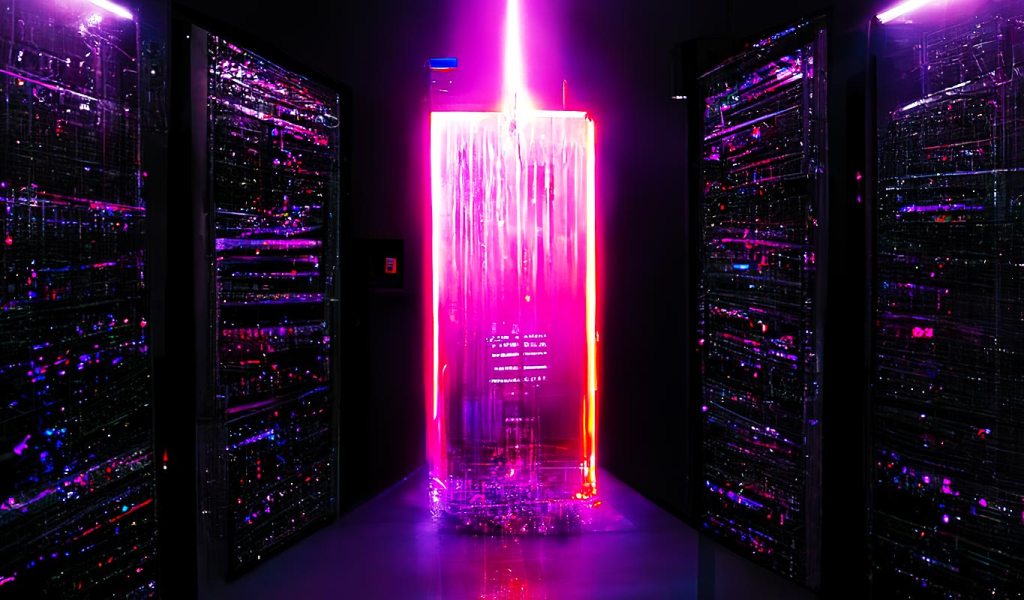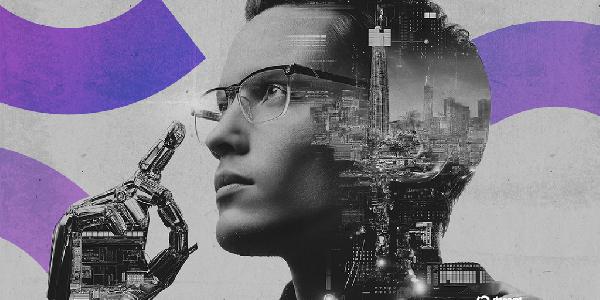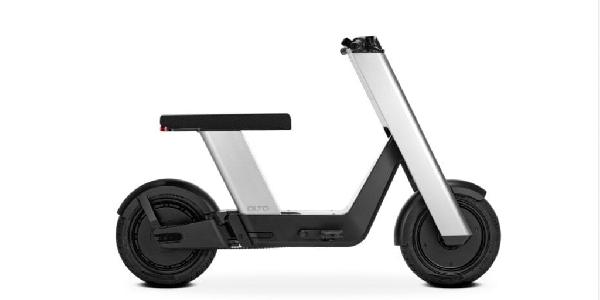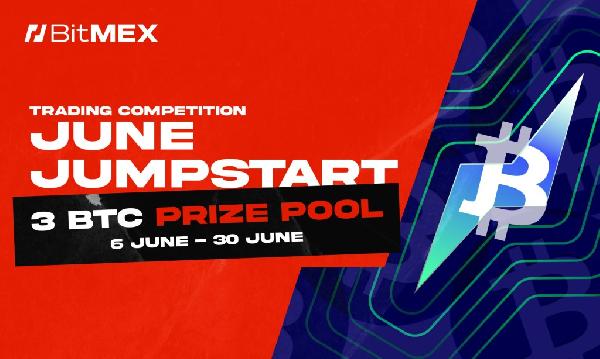HodlX Guest Post Submit Your Post
The healthcare industry faces persistent challenges – inefficiencies in care delivery, lack of transparency in processes, fragmented patient data systems and misaligned incentives among stakeholders.
These issues erode trust, inflate costs and hinder innovation.
DAOs (decentralized autonomous organizations), powered by blockchain technology, offer a transformative approach to addressing these problems by fostering transparency, patient empowerment and community-driven governance.
This article explores how DAOs could reshape healthcare, diving into their mechanics, applications, real-world examples, challenges and future potential.
What are DAOs
DAOs are entities governed by smart contracts – self-executing code on a blockchain – rather than traditional hierarchical management.
DAOs operate without centralized control, relying instead on token-based voting systems where stakeholders (token holders) collectively make decisions.
These tokens represent voting power or ownership in the DAO, ensuring democratic governance.
Key features of DAOs include the following.
- Transparency – All transactions and decisions are recorded on an immutable blockchain, publicly verifiable by all members.
- Decentralization – No single entity controls the organization, reducing risks of corruption or mismanagement.
- Automation – Smart contracts enforce rules and execute decisions, minimizing human error and bureaucracy.
- Community governance – Stakeholders vote on proposals, from funding allocation to operational changes, aligning incentives.
In healthcare, these characteristics make DAOs uniquely suited to tackle systemic issues by empowering patients, providers and researchers to collaborate in a trustless, transparent ecosystem.
Addressing healthcare’s core challenges with DAOs
Transparent medical research funding
Medical research, particularly pharmaceutical development and clinical trials, often suffers from opaque funding processes and conflicts of interest.
Funding decisions may prioritize profit over patient needs, and lack of transparency can erode public trust.
DAOs offer a solution by decentralizing and democratizing research funding.
- Crowdsourced funding – DAOs allow stakeholders – patients, researchers, healthcare providers or even the public – to pool resources and vote on which research projects to fund. This ensures funding aligns with community priorities, such as rare disease research or underserved populations.
- Immutable accountability – All funding decisions and transactions are recorded on the blockchain, making it impossible to manipulate or hide allocations. This transparency builds trust and ensures funds are used as intended.
- Accelerated innovation – By involving diverse stakeholders, DAOs can prioritize innovative projects that might be overlooked by traditional funding bodies, potentially speeding up breakthroughs in treatments or diagnostics.
For example, a DAO could enable patients with a specific condition to fund research directly, ensuring their needs are addressed while giving researchers access to a transparent funding pool.
Patient data ownership and privacy
Fragmented patient data is a major barrier to efficient healthcare. EHRs (electronic health records) are often siloed across providers, making it difficult for patients to control or share their data.
This fragmentation hampers care coordination and limits the data available for research.
DAOs can empower patients through decentralized data management.
- Patient-centric data control – Using blockchain, DAOs can create secure, decentralized platforms where patients own their medical data. Patients can grant or revoke access to specific providers, researchers or institutions via smart contracts, ensuring explicit consent.
- Enhanced privacy and security – Blockchain’s cryptographic protocols protect sensitive health data, reducing risks of breaches common in centralized systems. Patients can share anonymized data for research without compromising privacy.
- Data monetization and research – DAOs can facilitate data marketplaces where patients voluntarily contribute anonymized data to research initiatives in exchange for tokens or other incentives. This fuels data-driven discoveries while rewarding patients for their contributions.
For instance, a patient could use a DAO to share their genetic data with a research institute studying cancer, receiving tokens in return while maintaining control over who accesses their information.
Decentralized health insurance models
Traditional health insurance systems are plagued by high administrative costs, opaque claims processes and slow payouts.
DAO-based insurance models can streamline operations and enhance fairness.
- Community-driven pools – DAOs can create peer-to-peer insurance pools where members contribute premiums (in tokens or cryptocurrency) and vote on claims. Smart contracts automate payouts based on predefined criteria, reducing overhead and delays.
- Transparency in claims – All claims and payouts are recorded on the blockchain, ensuring members can verify fairness and track fund usage.
- Lower costs – By eliminating intermediaries like insurance companies, DAOs reduce administrative fees, making coverage more affordable and accessible, particularly for underserved communities.
A DAO-based insurance model could, for example, provide affordable coverage for chronic disease management, with members collectively deciding coverage terms and claims criteria.
Community-driven health initiatives
Healthcare needs vary widely across communities, yet centralized systems often fail to address localized priorities.
DAOs enable grassroots health initiatives by empowering communities to pool resources and make decisions.
- Localized funding – Communities can create DAOs to fund local health projects, such as building clinics, supporting mental health programs, or providing vaccinations in underserved areas.
- Incentive alignment – DAOs align incentives by giving community members a stake in outcomes. For example, a DAO could reward participants for preventive health measures, like regular checkups, with tokens redeemable for services.
- Global collaboration – DAOs can connect communities worldwide, enabling knowledge-sharing and resource pooling for global health challenges, such as pandemics or climate-related health crises.
A rural community, for instance, could establish a DAO to fund a mobile clinic, with residents voting on its services and operations to ensure it meets local needs.
Real-world examples of healthcare DAOs
Several projects are already exploring DAO applications in healthcare, demonstrating their potential, including the following.
- Healthereum – This platform uses blockchain and DAO principles to enhance patient engagement. Patients receive tokens for adhering to treatment plans or attending appointments, incentivizing proactive health management. Providers benefit from streamlined workflows and transparent patient interactions.
- Robomed network – This DAO integrates blockchain to automate healthcare processes, such as patient-provider agreements and care delivery. It aims to improve efficiency and reduce costs through decentralized governance and smart contracts.
- Molecule – A DAO focused on decentralized biotech research, Molecule enables communities to fund and govern drug development projects. It connects researchers, patients and investors to accelerate innovation transparently.
These projects illustrate how DAOs can bridge gaps between stakeholders, creating more equitable and efficient healthcare systems.
Challenges and barriers to adoption
Despite their potential, healthcare DAOs face significant hurdles.
- Regulatory compliance – Healthcare is heavily regulated, with strict laws like HIPAA (in the US) governing data privacy and medical practices. DAOs must navigate these regulations to ensure compliance, which may limit decentralization or require hybrid models.
- Technological complexity – Blockchain and DAOs require technical expertise, which can be a barrier for patients, providers or communities unfamiliar with the technology. User-friendly interfaces and education will be essential for adoption.
- Scalability and adoption – Blockchain networks can face scalability issues, such as slow transaction speeds or high costs, which could hinder large-scale healthcare applications. Widespread adoption also requires buy-in from stakeholders accustomed to traditional systems.
- Equity concerns – Token-based governance risks excluding those who cannot afford tokens or lack access to blockchain infrastructure, potentially creating new disparities. Addressing these challenges will require collaboration between technologists, healthcare professionals, regulators and communities to balance innovation with practicality.
The road forward
The potential of DAOs to revolutionize healthcare lies in their ability to create a transparent, patient-centric and collaborative ecosystem.
As blockchain technology matures and adoption grows, DAOs could do the following.
- Empower patients – By giving individuals control over their data and healthcare decisions, DAOs shift power from institutions to patients.
- Foster innovation – Transparent funding and data-sharing accelerate research and development, addressing unmet medical needs.
- Reduce costs – Decentralized models eliminate intermediaries, making healthcare more affordable and accessible.
- Build trust – Immutable records and community governance restore confidence in healthcare systems.
To realize this vision, stakeholders must invest in user-friendly platforms, regulatory frameworks and education to bridge the gap between blockchain’s potential and real-world implementation.
Pilot projects, like those mentioned, will serve as critical testing grounds for refining DAO models.
Conclusion
DAOs represent a paradigm shift for healthcare, offering solutions to inefficiencies, opacity and disempowerment.
By leveraging blockchain’s transparency and decentralization, DAOs can create a future where patients control their data, communities drive health initiatives and research aligns with public needs.
While challenges remain, the growing interest in blockchain and decentralized governance signals a promising path forward.
As DAOs evolve, they could redefine healthcare as a collaborative, equitable and innovative ecosystem, putting power back into the hands of patients and communities.
Tony Stash is a blockchain analyst and crypto enthusiast with a passion for exploring how decentralized technologies can solve real-world problems. With a background in healthcare policy and technology, Tony focuses on the intersection of blockchain and healthcare, advocating for solutions that empower patients and foster innovation.
Follow Us on Twitter Facebook Telegram
Check out the Latest Industry Announcements Disclaimer: Opinions expressed at The Daily Hodl are not investment advice. Investors should do their due diligence before making any high-risk investments in Bitcoin, cryptocurrency or digital assets. Please be advised that your transfers and trades are at your own risk, and any loses you may incur are your responsibility. The Daily Hodl does not recommend the buying or selling of any cryptocurrencies or digital assets, nor is The Daily Hodl an investment advisor. Please note that The Daily Hodl participates in affiliate marketing.
Disclaimer: Opinions expressed at The Daily Hodl are not investment advice. Investors should do their due diligence before making any high-risk investments in Bitcoin, cryptocurrency or digital assets. Please be advised that your transfers and trades are at your own risk, and any loses you may incur are your responsibility. The Daily Hodl does not recommend the buying or selling of any cryptocurrencies or digital assets, nor is The Daily Hodl an investment advisor. Please note that The Daily Hodl participates in affiliate marketing.Featured Image: Shutterstock/Clever Arts 2





